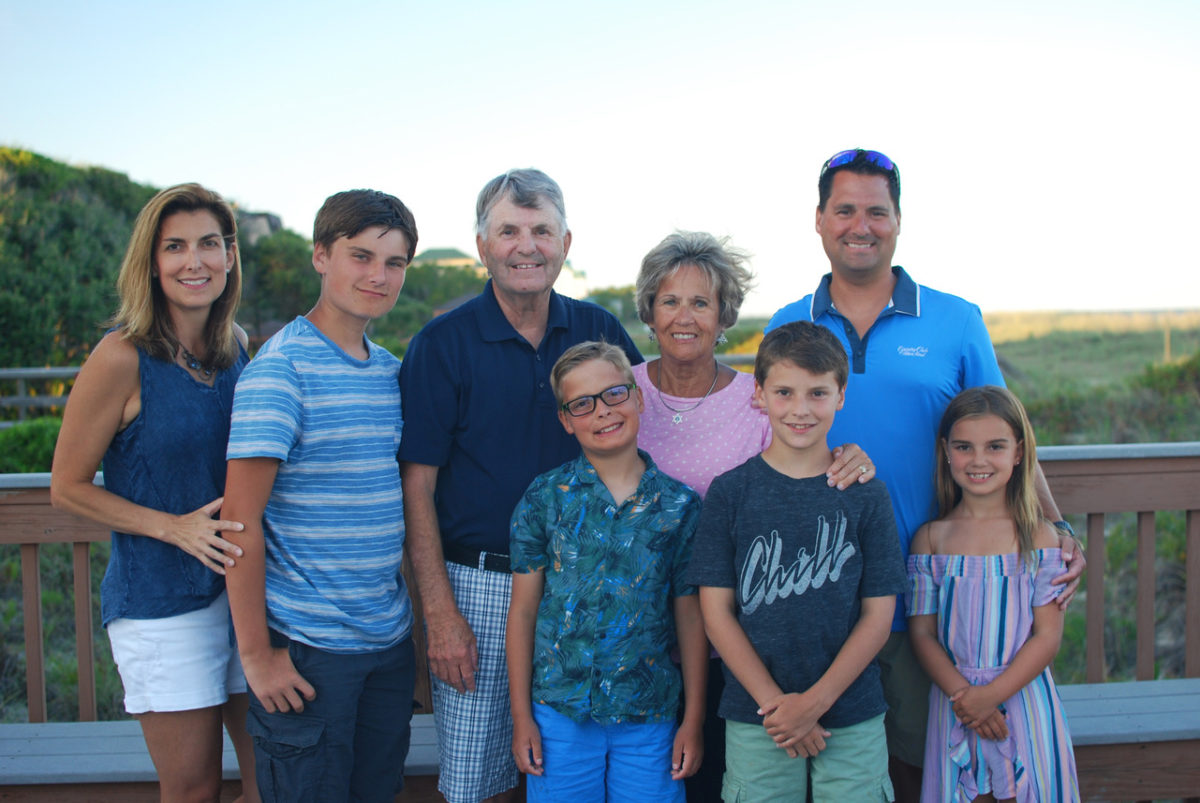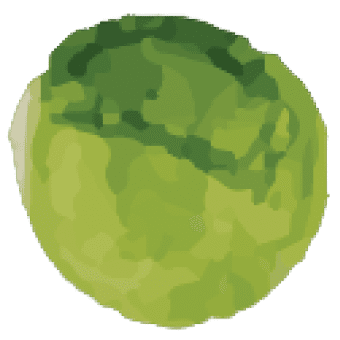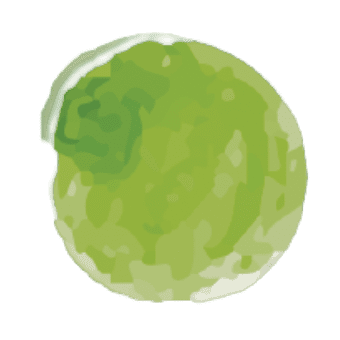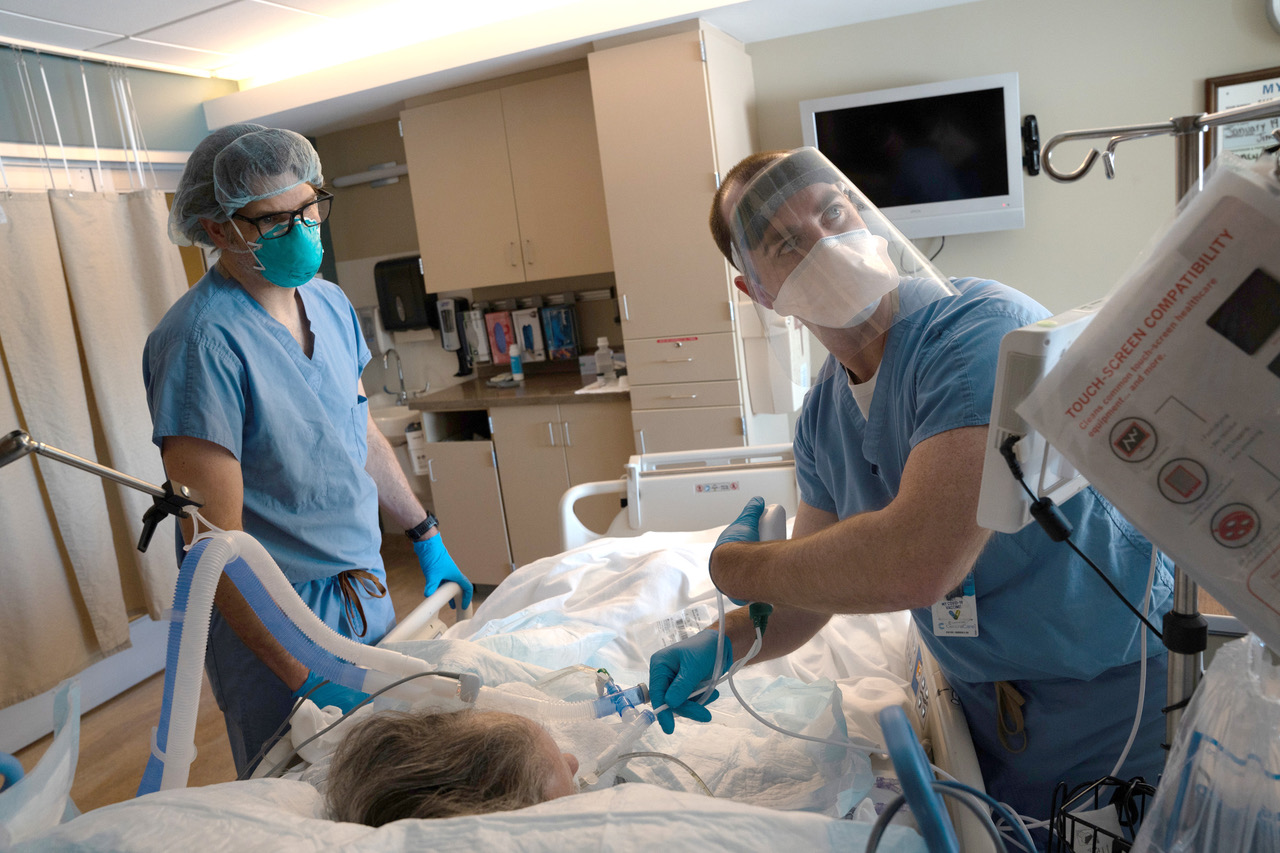Fighter Pilot or Cardiologist
Heart surgery, Top Gun, and a father’s influence to innovate
In 2021 St. Cloud Hospital’s Jake Dutcher, MD, became the first cardiologist in the world to use a 4D hologram to fix a patient’s heart defect. The new technology has dramatically reduced the time needed for the procedure and made it possible for cardiologists to work with greater confidence.
But to get the whole story of Dr. Dutcher’s journey to this major breakthrough, you have to go all the way back to preschool, when he was diagnosed with his own heart defect.
“They didn’t know exactly what it was, because back then they didn’t have all the technology that they do today,” he recalled.
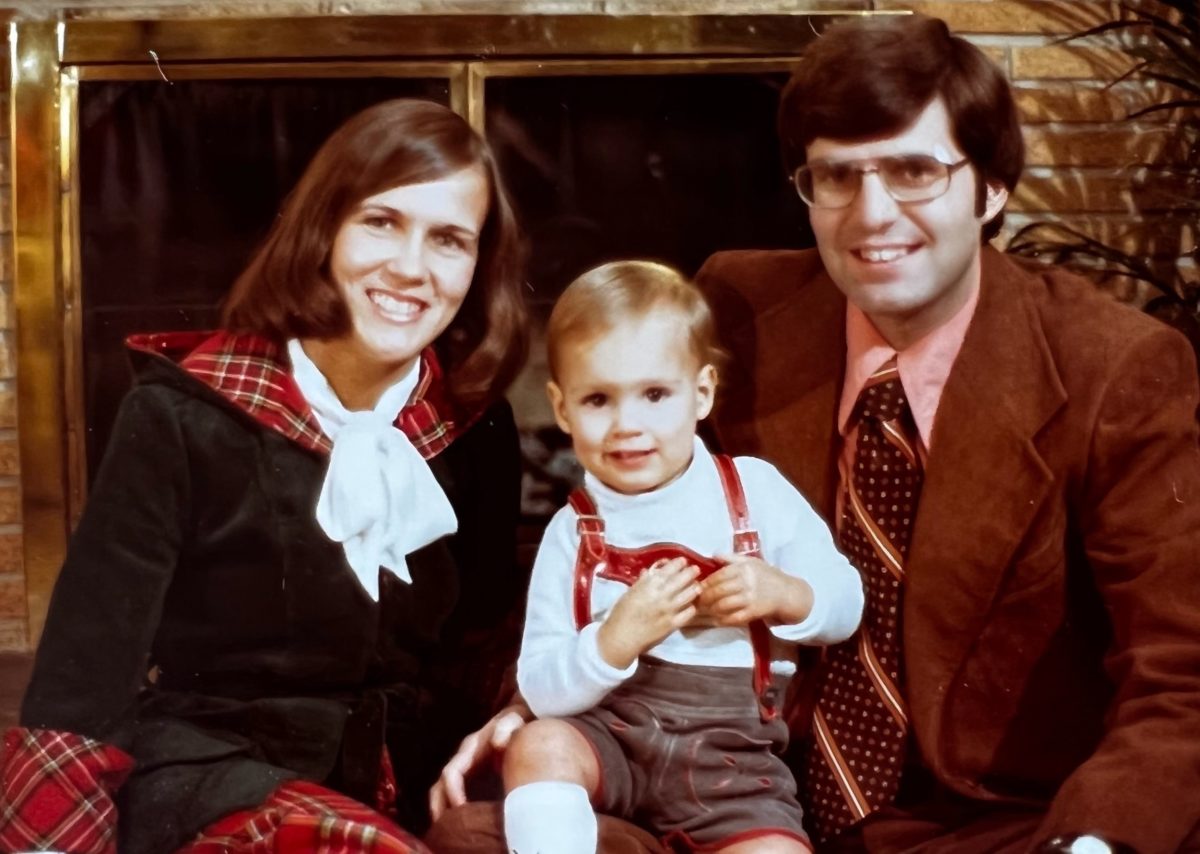
They didn’t know exactly what it was, because back then they didn’t have all the technology that they do today”
Jake Dutcher, MD, cardiologist
Dutcher had open-heart surgery when he was just five years old; the doctors cut him open and found a small hole in the upper two chambers of his heart, which was causing blood cells from his right lung to drain to the wrong side of his heart.
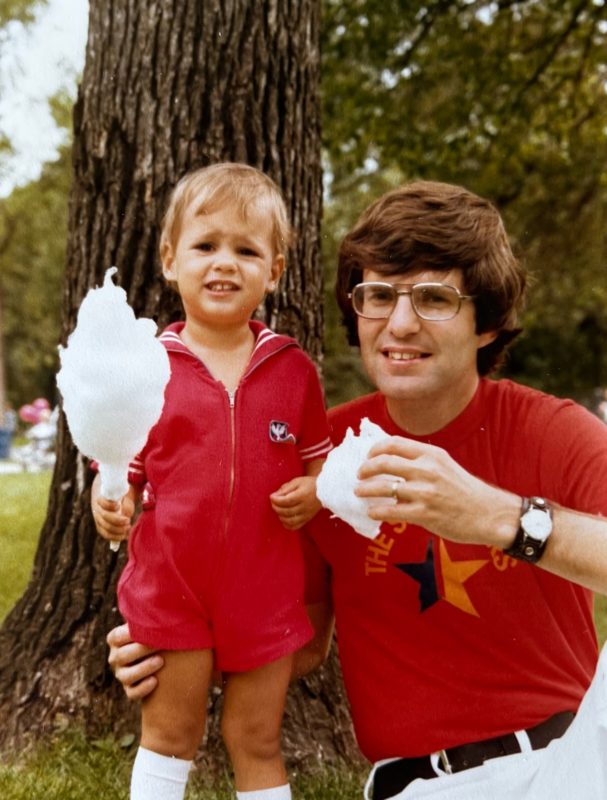
A concerned dad
Dutcher’s father Bob, as it happens, worked in the biomedical industry developing technologies to advance heart care.
“At that time, open heart surgery wasn’t in its infancy, but it was still pretty young,” said Dutcher’s father. “And that was one of the most stressful things I’ve encountered in my life, was to have my son have to have open heart surgery. Because of my background I knew everything that could go wrong.”
Thankfully, young Jake recovered quickly from his surgery.
It was difficult on all of us, but Jake did a great job,” said his dad. “And he told us, ‘I want to fix hearts when I get older.’ I thought well, okay, a kid will do that, you know, but it was amazing – he never got away from that – he stayed with it.”
Jake Dutcher did have one other interest, but it wasn’t meant to be.
Top Gun
“When it got to eighth or ninth grade, the two things I wanted to be were either a heart surgeon and work on kids, or I wanted to fly fighter jets,” said Dutcher.
Inspired by the movie “Top Gun,” Dutcher met with a recruiter to find out what he needed to do to become a pilot. The recruiter said he would make a great candidate – except for one thing.
“‘You’ve got a scar on your chest,’ he said. ‘There’s no way anybody with heart surgery is going to command a $50 million plane.’ So that was the end of my dream to be a fighter pilot. And it actually was a blessing in disguise because I probably would have enjoyed doing that, but I don’t think that’s actually where my real passion lies. And it took that kind of negative experience to turn into a positive experience. And from that moment on, that’s when I really kind of made the decision that God-willing, I’d like to be a physician and take care of patients and give back what was given to me.”
From that moment on, that’s when I really kind of made the decision that God-willing, I’d like to be a physician and take care of patients and give back what was given to me.
Jake Dutcher, MD, Cardiologist
At first Dutcher thought he wanted to be a heart surgeon. But his father encouraged him to look at interventional cardiology instead.
“His experience with heart medicine was that things were moving – not that cardiovascular surgery was a dying field, but there wasn’t as much growth in that area as there was an interventional cardiology, which uses catheters,” explained Dr. Dutcher. “A lot of these procedures use minimally invasive techniques, and that area was growing very rapidly. So it was his wisdom that guided me in that direction.”
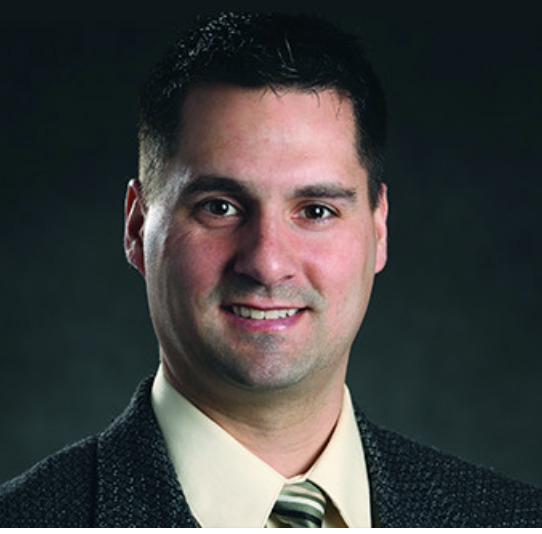
Full-circle invention
Dutcher went to the University of Minnesota Medical School, and then to the Mayo Clinic for his residency. While he was pursuing his studies, his dad continued to work on new technology at Possis Medical. He developed a tool called the “AngioJet” which uses a high-powered miniaturized saline jet to remove blood clots.
“And I’ll never forget one night I got a call from Jake and he said ‘Hey dad, guess what? I just used your AngioJet product and I saved the life of this patient that had a big clot in the right coronary artery!’” recalled Dutcher’s father. “I’ll never forget that conversation.”
Jake Dutcher, MD, joined CentraCare in the summer of 2007 and soon after started the structural heart program at CentraCare’s Heart & Vascular Center. The most common procedure was a “Watchman” procedure, in which cardiologists repaired a hole in the heart, thereby preventing blood clots and eliminating the patient’s need for blood thinners.
But Dutcher noticed a consistent challenge; at the top of the heart is a small sac known as the left atrial appendage, or LAA. And the LAA comes in several different shapes.
“It has names that we use to describe those shapes. So a common description would be a windsock, like you’d see at an airport, but other names would be chicken wing, broccoli, cactus, or lobster claw. You can see by these names that we’re describing pretty complex three-dimensional structures. And we’ve got a device which is a plug that needs to be able to plug up all of these things.”
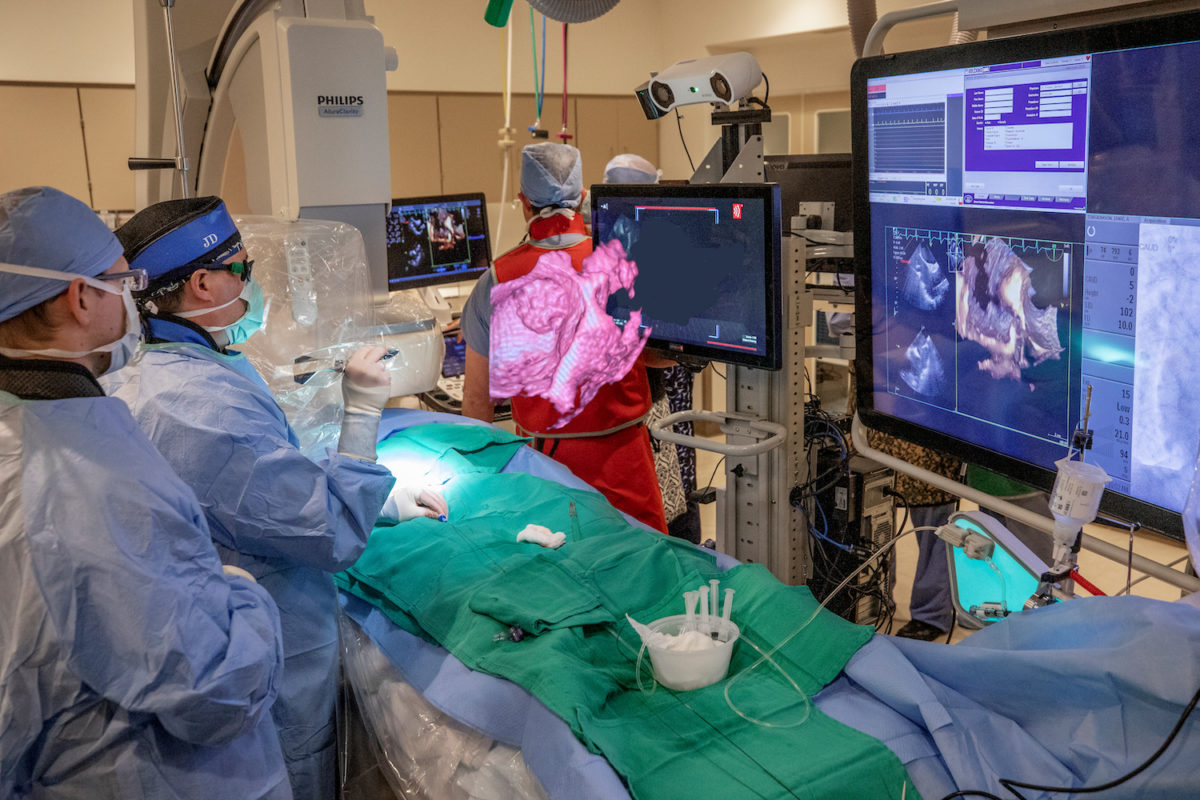
Transformative technology
Working with EchoPixel founder Sergio Aguirre, Dutcher has spent the last several years working to incorporate 3D – and now 4D – technology in the Cath lab. He says the technology has completely transformed how he works.
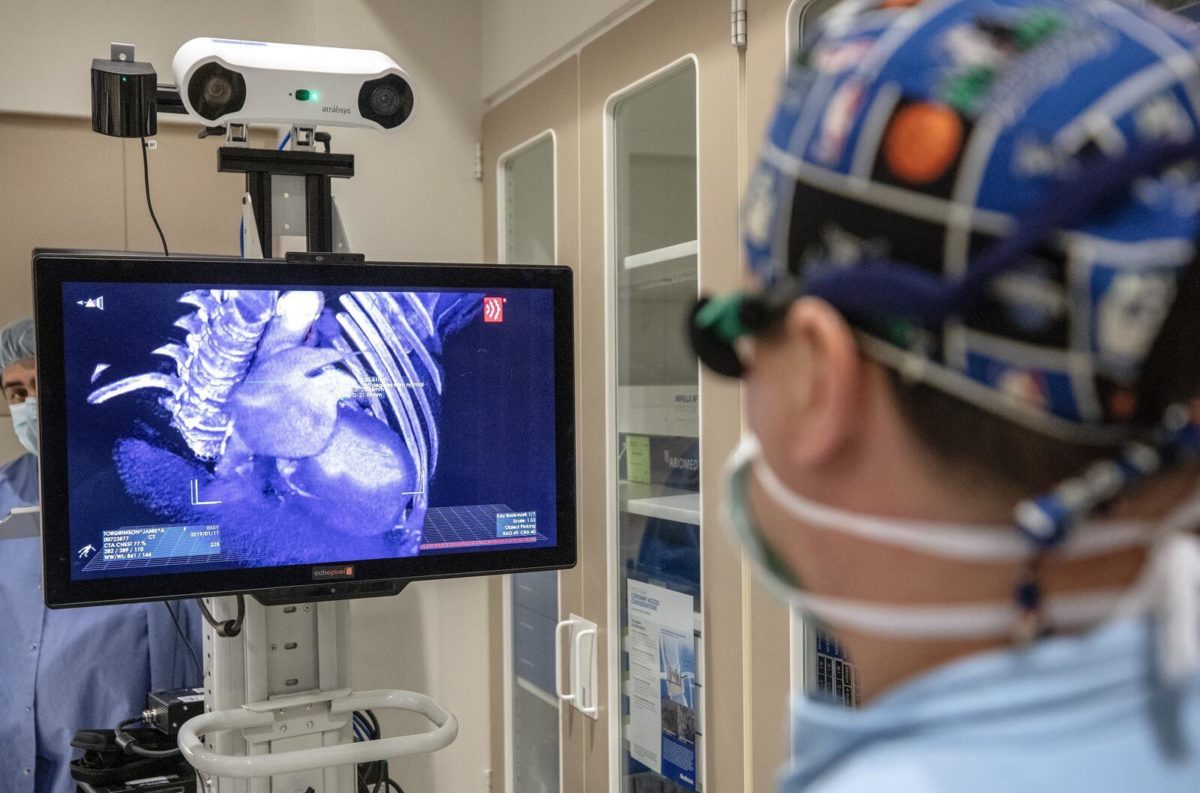
“It’s like I’m standing inside of that person’s heart. I can see where the catheter is. If I don’t like the angle I’m at, I can easily just rotate the image to look at it from a different angle,” he explained. “And I can walk away from that procedure with just extreme confidence that that device is exactly where it needs to be – it’s functioning perfectly, no signs of any problems or complications. You’re just able to see things like you’d never been able to see before.”
Once a heart patient himself, cardiologist Jake Dutcher is now a key player in a technological revolution in how to mend the human heart. He credits his father’s influence with much of his success.
“He’s a genius, but he is so humble,” said Dutcher, “and you’d have no idea just talking to him what he’s done in his life. He’s just so humble about everything – he’s really an amazing man.”
Bob Dutcher is just as impressed by his son.
“He got a little bit more than I was able to pass on – he’s pretty remarkable. He was always that way to us.”


